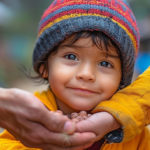
Historical study on the illicit practices of intercountry adoption confirms systemic nature of abuses
Two researchers, Fabio Macedo and Yves Denéchère, attached to the University of Angers, with whom the Ministry of Foreign Affairs (MAE) signed an agreement in December 2021 to prepare this independent report, released their findings on 6 February. Nigel Cantwell, international child protection consultant and CHIP advisor, notes “This is a thoroughly credible and immensely significant report, not just for France but for all receiving countries. The main takeaway for me is that it provides definitive proof, through trawling diplomatic archives, of what we’ve been trying to demonstrate for years: notably that the existence of a market was well known to authorities as of the 1970s (and especially in the 1980s) and that serious concerns were being expressed contemporaneously. One of many examples is the MFA circular to diplomatic posts in 1973 alerting to unauthorised agencies proposing to bring children to France ’without securing the minimum of indispensable guarantees’ (page 46). To my mind that invalidates the argument that, because ’attitudes towards ICA were different then’ and the legislative framework was inadequate, the authorities were not in a position to act. Of course they could and should have found ways to respond!”
CHIP welcomes this report as conclusive evidence that authorities in France (and indeed other States) were well aware of abuses. However, they chose to acquiesce to the demands of families wanting children, turning a blind eye to those children’s potential commodification and right to identity, among other rights. CHIP hopes that all relevant States will take prompt action to investigate alleged rights violations of these kinds, providing pathways to justice including speedy re-establishment of identity of those affected persons (SDG 16, CRC Art.8). Such studies should alert States to the necessity of tackling environments that create markets for children, not only in adoption matters but also in comparable contexts including emergency situations, orphanage tourism and surrogacy arrangements.





